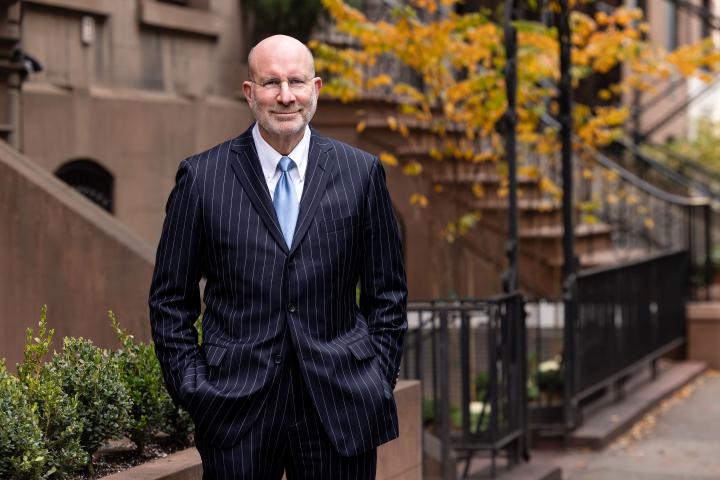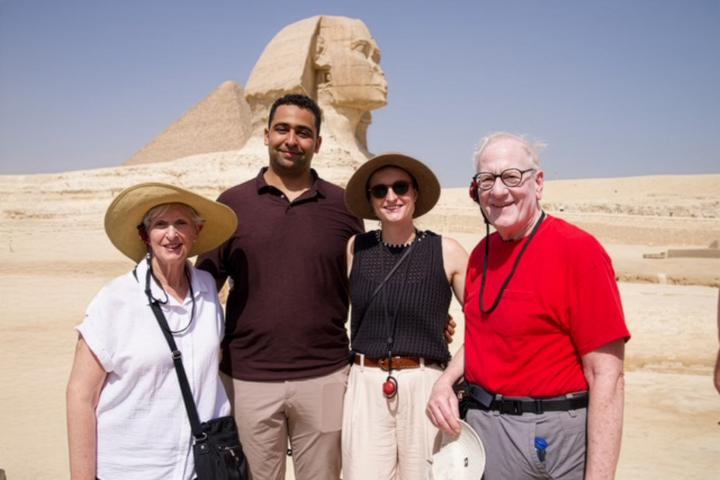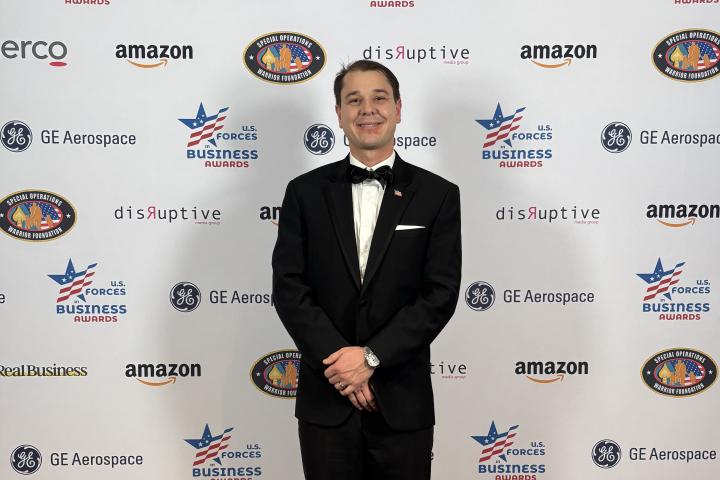
A Spy, a Seamstress and an ILRie

In August 1975, Scott Smith ’79, M.B.A. ’80, saw Cornell for the first time as he stepped out of a taxi at the bottom of Libe Slope just a few days before beginning classes.
“All of a sudden, I saw this mountain and thought, ‘Wow. I’m going to have to walk this every day.’”
The “mountain” proved no match for Smith, a Brooklyn native who reveled in the ILR curriculum, particularly history classes taught by Professor Clete Daniel.
“I loved history, and Clete Daniel was a very lively, sharp, detail-oriented lecturer. He really brought labor history to life for me, and it’s been a great thread for me as a student, a person and a writer.”
Smith, who lives in Greenwich, Connecticut, tapped into that thread when he researched correspondence, diaries and maps from hundreds of years ago to write “The Spy and the Seamstress,” a historical fiction novel published in March.

The book combines action, suspense and romance to tell the story of Revolutionary War hero Nathan Hale and Anne Wheaton, a fictional character whose father, a staunch supporter of the British crown, is threatened by a patriot mob.
It is Smith’s third book since retiring in 2014. “I began researching “The Spy and the Seamstress” in 2017. ‘Hamilton’ was a hit, and I wondered, ‘What can I do to follow in that wake?’ I focused on Nathan Hale. I wanted to tell the story of America at its birth and show the parallels between then and today’s intense political discourse. Today, you might be trolled on Twitter; back then, they might tar and feather you.”
“We think about today as such a divisive time, but when you go back, you had the same dynamics at work,” said Smith, who hopes the book helps fuel renewed interest in Hale in the runup to the 250th anniversary of the Declaration of Independence signing and Hale’s execution.
For details, Smith said he went down research “rabbit holes” to create historically correct colonial-era details that led to passages such as this:
“The lamps on Broadway revealed a grand boulevard transformed into a military camp. Riding down the middle of the broad avenue, Anne could not help but marvel at the degradation of her surroundings. Ancient oaks had been chopped down to stumps, and flowerbeds ripped out. Half-dressed soldiers crammed into the brick mansions that once housed the city’s elite. Fortunately, all muskets were pointed east and west towards the rivers where the British might shortly land.”
He relied on his "The Spy and the Seamstress" research to write five articles published in the “Journal of the American Revolution.” Two were selected for inclusion in the Journal’s annual compendium of its best writings.
Smith has also published two contemporary cybersecurity thrillers, “Darkness is Coming,” which won “distinguished favorite” in the thriller category in the New York City Big Book Award competition in 2021 and “The Fourth Amendment.”
Almost 50 years ago as a Cornell wrestling walk-on, Smith witnessed a work ethic that would serve him well as a writer and throughout his career in the investment world.
“I learned so much about life on the wrestling team by being with outstanding athletes who worked so hard,” he said.

Smith began his career in 1980 at Citibank, where a programmer friend encouraged him to understand the software business. “A lightbulb went on,” Smith said.
A couple of years later, he joined the Gartner Group, a leading computer industry market research and consulting firm, thinking it would lead him to a job on Wall Street. “My goal was to get into investment banking. I could have cared less about tech.”
“I was assigned the software industry because nobody else wanted it. Software was considered a fly-by-night business. People were focused on computer hardware.”
When a call came in from Microsoft wondering if anyone might want to meet its CEO in nearby New York City, Smith said he alone was interested. “Nobody really thought it was worth it. I went to dinner alone with Bill Gates at Tavern on the Green.”

“Here is this guy who was really, really smart telling me how important computer software was, and I thought, ‘Here’s a business that’s going to take off. This is where I want to throw my hat.’”
For the rest of his career, Smith focused on computer software and computer services. From 1986 until 1993, he was a vice president at Donaldson, Lufkin & Jenrette, responsible for investment research in the computer software and services industry. In 1994, he and his wife, Heidi, started Camelot Capital, an investment firm focused on computer software and information services.
“Sitting next to each other for 18 years was a wonderful experience. When we decided to wind down and pursue second careers, Heidi got a master's degree in urban planning at Columbia, and I started to write fiction in 2014. I had been doing a very formal business type of writing, and I wanted to write more creatively.”

They are the parents of two ILRies, Alexander Smith ’15, a Chicago Cubs coach specializing in analytics, and Sabrina Smith ’18, who is an entrepreneur running her own creative design business in the Phoenix area.
The Smiths’ first child, Garrett, passed away at age four in 1995. They established the Garrett B. Smith Foundation, which has raised more than $5 million to support pediatric cancer research and provides funding for Healthy Humor clown care at Yale-New Haven Children’s Hospital.
Smith is at work on his fourth novel, which continues his interest in the Revolutionary War period and the hard-working people who defined that era.
ILR’s development of his historical knowledge and interest in workers, he said, is part of his enduring connection with the school and university.
“I’m grateful that I had the chance to climb that mountain in 1975. My ILR and Cornell experiences and relationships will always play an important role in my life.”


